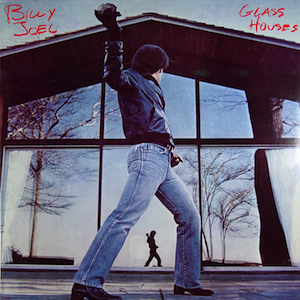
A JAPANESE SOUND boffin has come up with a glass CD which he reckons does not warp, distort, and looks and sounds nicer than those nasty plastic creations.
Speaking to Mainichi magazine, inventor Suenori Fukui said that by imprinting the data onto handmade glass the CD lasts much longer.
He said that he wanted to make a CD which could be passed onto his grand children, assuming of course they have the players to read the formats in the future.
He said that plastic CDs were not completely transparent, information on them cannot be read perfectly. They are also susceptible to bending or warping if left in sunlight or humid areas, which leads to sound distortion.
The main market he is flogging them to are audiophiles who are more likely to notice the sound difference, or at least think they can. The first thing to be released on a glass CD is an audio recording of Johann Sebastian Bach’s “Air on a G String”.















I suspect that this guy is full of CRAP. The give away is this statement:
“They are also susceptible to bending or warping if left in sunlight or humid areas, which leads to sound distortion.”
The data is DIGITAL, it either play or it won’t play,
Also poly carbonate is highly transparent, more transparent than most glass.
The other giveaway to BS is the news source . . .
“The other giveaway to BS is the news source . . .”
Mainichi magazine or the Inquirer?!
That’s nothing. Check out this knob
This is the last vestage of BS Audio malarkey. Data is data!!
I’m reminded of the jerkoff that in one of hte high-end audio magazines was discussing DAT and how the qaulity of the tape was important and it had to get a good grip on the rollers to prevent “wow-and-flutter.” It was digital!
Well.. to be fair quality of the tape IS important, but for archival life and data integrity not sound quality 😉
w/r/t “distortion” the author was probably referring to jitter.
wrong of the author to assume this interests audiophiles; they don’t care much for pcm.
#5 the wood knob for $485.00 is quite insane indeed!
A certain percentage of my impressionable and overenthusiastic American & British audiophile brethren have always suckers for non- and anti-scientific gizmos and concepts, but the Japanese remain the undefeated kings of hi-fi gullibility. Yet contrasted with sly, cynical Western snake-oil salesmen, a significant number of the Japanese creators of this sort of thing are actually sincere, and have demonstrated genuine audio genius in other areas.
…also, for some incomprehensible reason, Asian audio designers, many of whom have created world-class components, have yet to build any loudspeaker worth a shit. Go figure.
So Observeth The Ghoti
Huh. Leave it to your grandchildren,who will promptly drop and break it. The first CD I ever bought (U2’s ‘Rattle and Hum”) withstood nearly two decades of use and abuse (portable players, home players, car players) before having to be replaced.
Had I shown the most rudimentary concern for the disk itself, it would be scratchless today. Something tells me that these glass CDs will have to be handled with kid gloves through their whole lifetimes.
You guys obviously don’t know what you are talking about if you cant tell the difference between wooden amplifier knobs and plastic amplifier knobs. Plastic amplifier knobs are crap, and anyone who uses plastic amplifier knobs is an idiot. Anyhow it is the more elegant solution, like the difference between a Lexus and a Ford.
I use both wooden amplifier knobs and plastic amplifier knobs at work. Two, sometimes three times a day the plastic amplifier knobs slip right out of my hands when I am trying to use them, and I end up losing all my work. On the other hand, in all the time I have used wooden amplifier knobs, not once have they ever caused a problem.
I always hear about compatibility problems with wooden amplifier knobs. Well now days with a machine shop, and a little glue, you can make ANY wooden amplifier knob do the job of a Plastic Amplifier knob. Failing that, you can even get wooden amplifier knobs that fit right over your existing plastic knobs, making them 100% plastic amplifier knob compatible.
I do have to admit, that when you go to the video game arcade there is almost nothing you can do about the knobs and buttons on those machines. ALL PLASTIC.
And don’t EVEN get me started on the problems with METAL amplifier knobs.